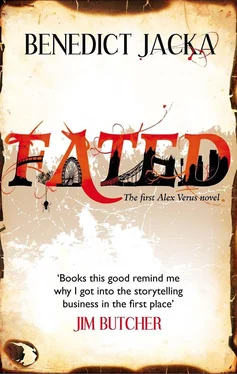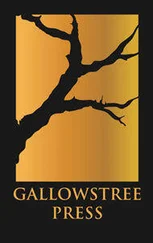Benedict Jacka - Fated
Здесь есть возможность читать онлайн «Benedict Jacka - Fated» весь текст электронной книги совершенно бесплатно (целиком полную версию без сокращений). В некоторых случаях можно слушать аудио, скачать через торрент в формате fb2 и присутствует краткое содержание. Жанр: sf_fantasy_city, на английском языке. Описание произведения, (предисловие) а так же отзывы посетителей доступны на портале библиотеки ЛибКат.
- Название:Fated
- Автор:
- Жанр:
- Год:неизвестен
- ISBN:нет данных
- Рейтинг книги:5 / 5. Голосов: 1
-
Избранное:Добавить в избранное
- Отзывы:
-
Ваша оценка:
- 100
- 1
- 2
- 3
- 4
- 5
Fated: краткое содержание, описание и аннотация
Предлагаем к чтению аннотацию, описание, краткое содержание или предисловие (зависит от того, что написал сам автор книги «Fated»). Если вы не нашли необходимую информацию о книге — напишите в комментариях, мы постараемся отыскать её.
Fated — читать онлайн бесплатно полную книгу (весь текст) целиком
Ниже представлен текст книги, разбитый по страницам. Система сохранения места последней прочитанной страницы, позволяет с удобством читать онлайн бесплатно книгу «Fated», без необходимости каждый раз заново искать на чём Вы остановились. Поставьте закладку, и сможете в любой момент перейти на страницу, на которой закончили чтение.
Интервал:
Закладка:
As I waited for my eyes to adjust, I looked through the futures and saw that if I moved forward I’d run into a line of massive columns, behind which was the museum’s main entrance. Starbreeze had said something about mages trying to open something. It might be Lyle’s relic, in which case this place would be under Council guard. Otherwise, it might be someone’s secret project. Either way, it was a safe bet nobody inside would be happy to see me.
If there’s one thing all diviners share, it’s curiosity. We really can’t help it; it’s just part of who we are. If you dug out a tunnel somewhere in the wilderness a thousand miles from anywhere and hung a sign on it saying, ‘Warning, this leads to the Temple of Horrendous Doom. Do not enter, ever. No, not even then’, you’d get back from lunch to find a diviner already inside and two more about to go in.
Come to think about it, that might explain why there are so few of us.
In any case, even if this wasn’t what I was after, I couldn’t resist having a closer look. I flipped the hood of my mist cloak up over my head and walked into the shadows of the huge columns. In the wall beyond were double doors of metal and glass. Through the glass I could see an open area with two men at a security station, one sitting, one standing. The only way through into the museum proper was to cross in clear line of sight of both men. I stood watching for two full minutes, then opened the door and walked inside.
Everyone knows diviners can see the future. But what does seeing the future mean?
Most people think it’s like reading a book. You skip a few pages ahead, see what’s going to happen. That’s impossible, of course. You reach a fork in the road: do you go left or right? You might go one way; you might go the other. It’s your choice, no one else’s.
What a diviner sees is probability. In one future you go left; in another you go right; in a third, you stop and ask for directions. A hundred branches, each branching again and again to create thousands, for every one of the millions of people living on this earth. Billions and trillions of futures, branching in every way through four dimensions like a river delta the size of a galaxy.
You can’t look at all that at once. If you opened your sight to all the possible futures of everything around you, even for an instant, the knowledge would destroy you, wipe away your mind like an ocean wave rolling over a drop of water. Seeing into the future is a constant discipline, always keeping your guard up, always focused. The real reason there are so few diviners is that most of them either go crazy or block their power off so that they don’t have to deal with it any more.
The diviners who don’t go crazy learn to see futures in terms of strength. Everyone develops their own code, a way of interpreting the information. To me, futures appear as lines of light in the darkness. The stronger and more likely the future, the brighter the glow. The next thing you learn is how to sort futures, search for groupings of events in which things happen a certain way. And once you’ve done that, all you have to do is look back along the strands and find out which actions lead to them.
In ninety-nine out of a hundred futures, opening the door and walking in led to me being spotted by the security guards. I searched for the future in which I wasn’t spotted, looked back to see what I had to do to make it happen, and did it. I didn’t have the faintest idea why I had to move that way. I just knew it would work.
To anyone watching, it looks like pure fluke. One guard points at something, and the other turns just as I open the door and close it behind me. They carry on talking and I stand quietly in the shadow of the doorway. One looks away briefly and I walk out across the floor as the second bends down to fumble in a drawer. I walk past, staying behind the first one as he turns back, and pass through the exit at the other side just before the second one looks up again.
Afterwards, when the balloon goes up, both guards will swear they never took their eyes off the door.
The Great Court of the British Museum is massive, more than fifty feet high with the huge cylinder of the Reading Room running from floor to ceiling at the centre. Floor and walls are painted white, reflecting the light and emphasising the empty space, and the ceiling is slightly domed. An equestrian statue stood to the right; to the left, a stone lion snarled down upon an information desk covered with pamphlets. I crossed the floor, half my mind on keeping my footsteps silent and the other half searching the possible futures for more guards, noting as I did that a patrol was due in about three minutes. I picked a map off the desk and glanced at it. The bulk of the ground floor was taken up by the west wing, mostly filled with permanent exhibits from Ancient Greece and Rome. Somehow I couldn’t see Lyle’s relic being one of those; if the Rosetta Stone or the Elgin Marbles were magical, I was pretty sure someone would have noticed by now. At the back, around the third floor, were some rooms marked in brown as ‘exhibitions and changing displays’. That sounded hopeful. I slipped the map into my pocket and started for the stairs.
As I climbed the curving staircase around the Reading Room and mapped out my path through the museum, the back of my mind was puzzling about why any kind of magical item would be here. Mages, as a whole, are not the most public-spirited of people. If they find something they want, they take it. They don’t leave it on display.
Unless in this case they couldn’t take it. If the Council couldn’t move it to a safe location, that might explain why Lyle was desperate enough to try contacting me.
I’d just reached Ethiopia and Coptic Egypt when something pinged on my precognition. Two guards were ahead. I paused until I knew neither was looking in my direction, then peeked my head around the corner. The men were about thirty feet away, standing in front of a staircase leading up, and they were carrying …
Bingo . The security guards at the door had worn the black uniforms and pullovers of British Museum security, with a silver ‘BM’ on their epaulettes. These two wore plain clothes. They carried no obvious tools or weapons, but I could sense the auras of magical items, and from the way one had moved I’d spotted a gun in a shoulder holster and that made them Council security. Mages don’t do sentry duty, not unless it’s literally a matter of life or death; they’re too important for that. Instead they have private soldiers, equipped with modern weapons and magical aids.
These two weren’t mages, or even adepts, but they were alert and competent. As well as that, I could tell from here that the top of the stairwell behind them was warded with a barrier. The barrier would contain a well-hidden alarm; anyone entering the fourth floor without the magical key, whether by foot or by spell, would set off a silent warning signal. Knowing the Council, the guards wouldn’t be trusted with the password key. An elemental mage could blast through the guards and the barrier, but would set off the alarm. A more subtle mage would be able to avoid raising the alarm, but they wouldn’t be able to get through the barrier.
It was a typical Council defence: cost-effective and ruthless. The job of those two guards was to be, basically, cannon fodder. If a mage attacked them, their chances of survival were nil. Their only purpose was to raise the alarm and give advance warning to Council reinforcements gating in. But no matter what I thought of the methods, I had to admit it was a fairly good setup. For a normal mage, getting past both the guards and the barrier without raising the alarm would take hours of preparation, if not days.
Читать дальшеИнтервал:
Закладка:
Похожие книги на «Fated»
Представляем Вашему вниманию похожие книги на «Fated» списком для выбора. Мы отобрали схожую по названию и смыслу литературу в надежде предоставить читателям больше вариантов отыскать новые, интересные, ещё непрочитанные произведения.
Обсуждение, отзывы о книге «Fated» и просто собственные мнения читателей. Оставьте ваши комментарии, напишите, что Вы думаете о произведении, его смысле или главных героях. Укажите что конкретно понравилось, а что нет, и почему Вы так считаете.












